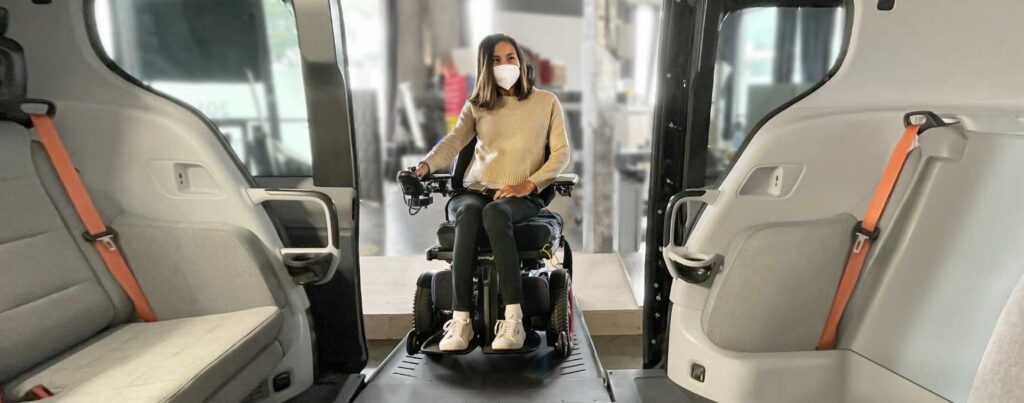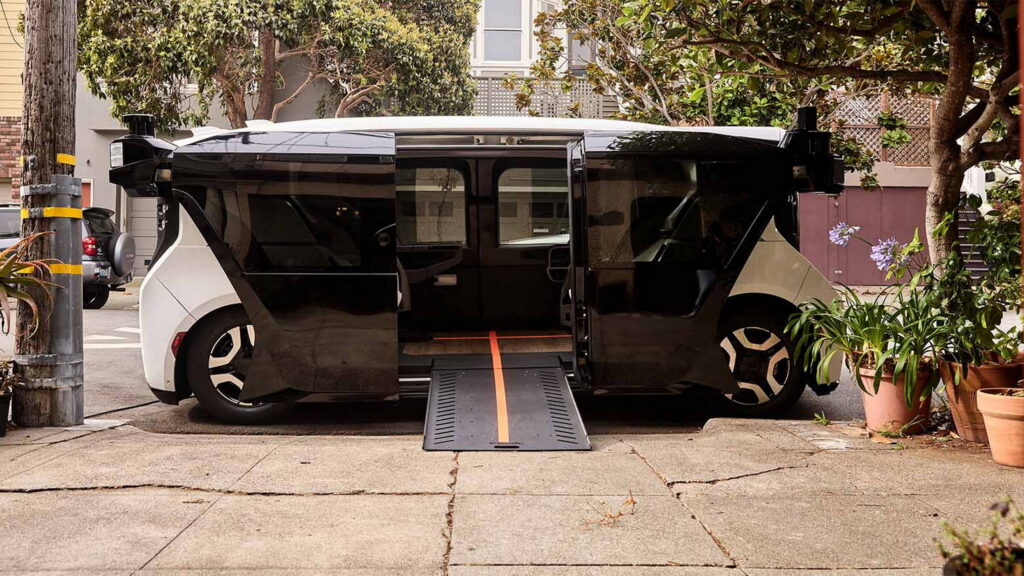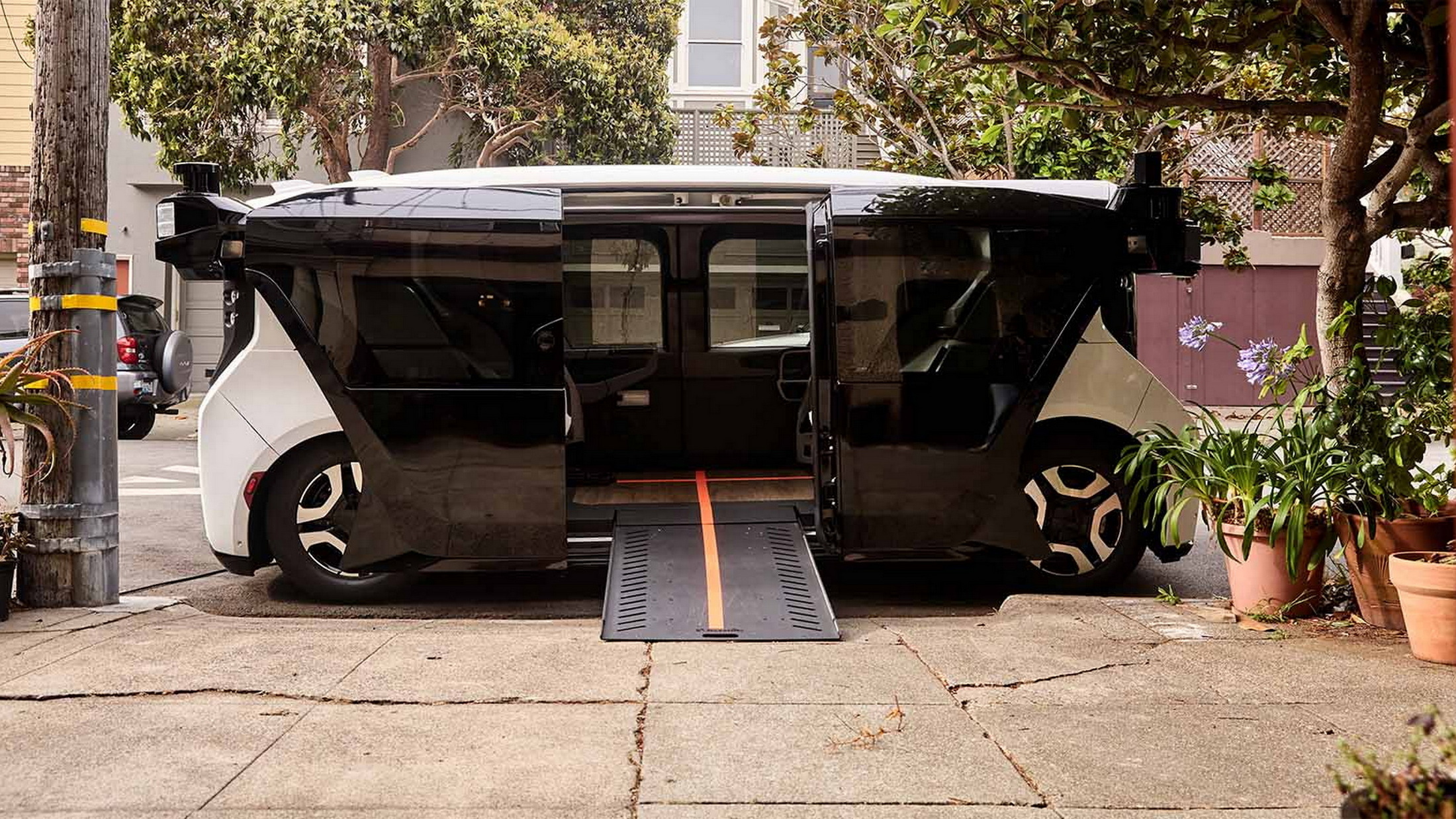One of the most successful autonomous vehicle companies has finally unveiled its long-awaited wheelchair-accessible vehicle. GM-backed Cruise says that the specially modified version of its Origin could be on the road as soon as 2024.
Although it is a modified version of its autonomous-only vehicle, Cruise says that the Origin was designed from the ground up with accessibility in mind. Everything from the low floor to the high ceiling, to the removable seats made easier to alter it to be wheelchair accessible.
Indeed, the concept vehicle now has a retractable ramp, more room inside, and floor clamps for wheelchair users. It has been designed to be able to pick up riders from curbs as high as four inches, but can only accommodate people with certain brands of wheelchairs at the moment.
Read: Cruise “Days Away” From Regulatory Approval For Level 5 Autonomous Origin, CEO Says

Those include the Permobil M-Series, Quantum Q6 Edge, and SM Quickie Q500 / 700M / Q7 chairs, while users with a manual wheelchair may need help from a companion to secure their straps.
But Cruise says that this is just its first generation of wheelchair-accessible vehicle (WAV) and that it plans to update the design based on feedback from users, reports The Verge. To get to this point, it says it has spent three years developing the concept with help from GM as well as BraunAbility and Q’Straint, its accessible vehicle design partners. It also consulted with its advisory council on accessibility.
Cruise and other autonomous vehicle companies have faced criticism over this matter. Although the autonomous space has been championed by Americans with disabilities for their promise, the speed at which options have emerged led some to question whether accessibility was a priority for these companies.
The Cruise Origin is the first major autonomous vehicle whose accessibility model is being advertised, but it comes on the heels of CEO Kyle Vogt’s promise (and NHTSA’s subsequent denial) that regulatory approval for the vehicle would be announced shortly. That makes the timing of this announcement interesting.
Whatever the reason, an accessible autonomous vehicle would mark the fulfillment of one of the technology’s big promises: mobility for all. However, for now, the vehicle must still be validated on closed courses, but Cruise says that if all goes well, pilot tests on public streets could start taking place in 2024.









